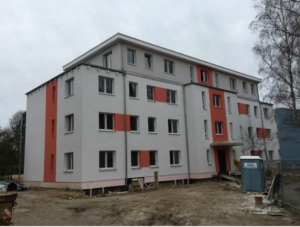How To Start A Housing Co-op

Housing cooperatives are defined primarily by their legal structure: coop members own the housing collectively through shares in an organisation, rather than individually, as with a condo. Residents also govern the housing democratically, either directly or through elected representatives. Not just for students, coops can be home to support groups of low-income families, artists, elderly, disabled, and people with a common purpose. Over 1.5 million homes in the US are part of a cooperative housing organisation.
There are several different kinds of coops:
- Rental or leasehold co-ops are democratically run organisations of tenants that equitably share costs of renting or leasing a building owned by someone else. Rental coops may share part of the management responsibility and often have more power collectively than single renters leasing from a conventional landlord. Nonprofits can also buy a building and rent it out to lower income folks who might not be able to afford shares. Sharing a house can offer big savings and can help people avoid foreclosure.
- Market rate coops are houses, apartment buildings or other groups of housing units that are organised under a democratically managed corporation in which residents purchase shares at a market rate. Shares cover the costs of a blanket mortgage, rainy day reserves, maintenance and other operating costs, insurance, tax, etc. Units are resold at market rate.
- Limited- or zero-equity affordable housing coops receive grants and government subsidies to make coop shares more affordable to low-income people. They keep the housing permanently affordable through legal restrictions on the amount of gain on a future sale of the coop share. Often these are organised groups of low-income tenants that agree to collectively buy the building they already rent through a nonprofit, usually a land trust that holds title to the land and takes it off the speculative market. It’s a great way to make permanent gains in the fight against gentrification.
Read more here….

